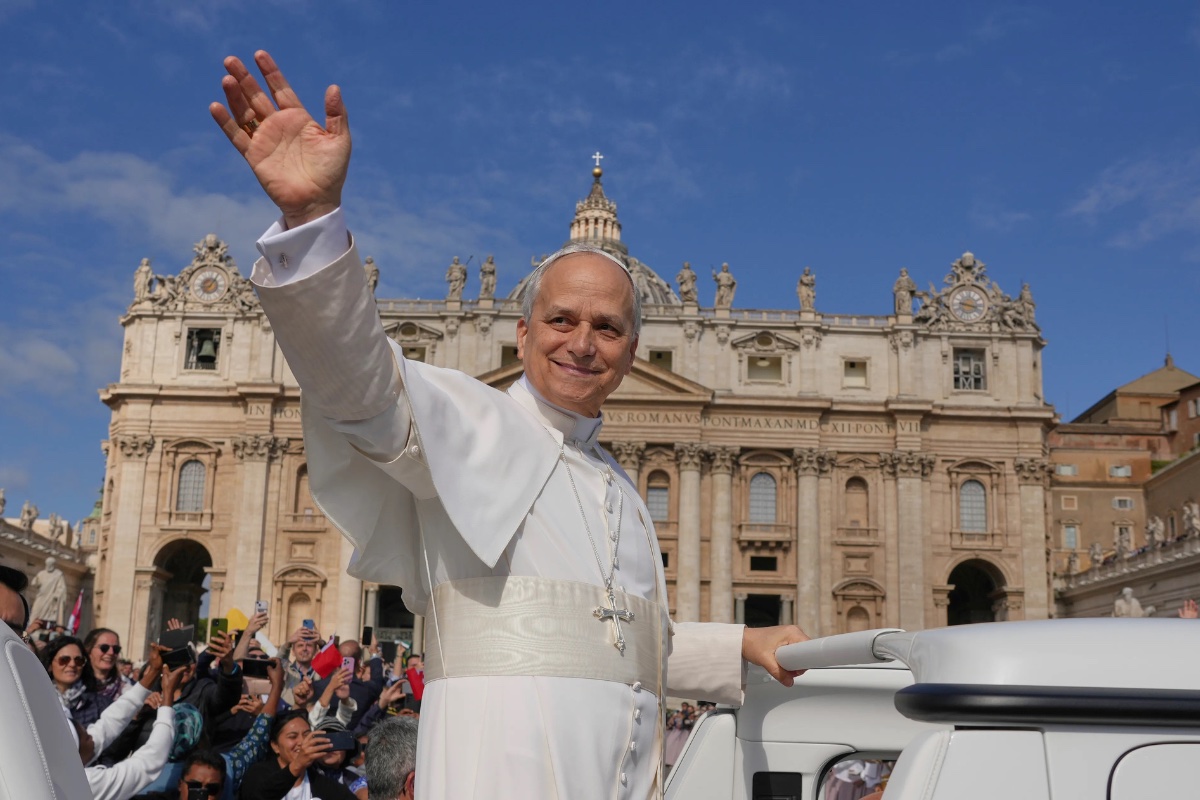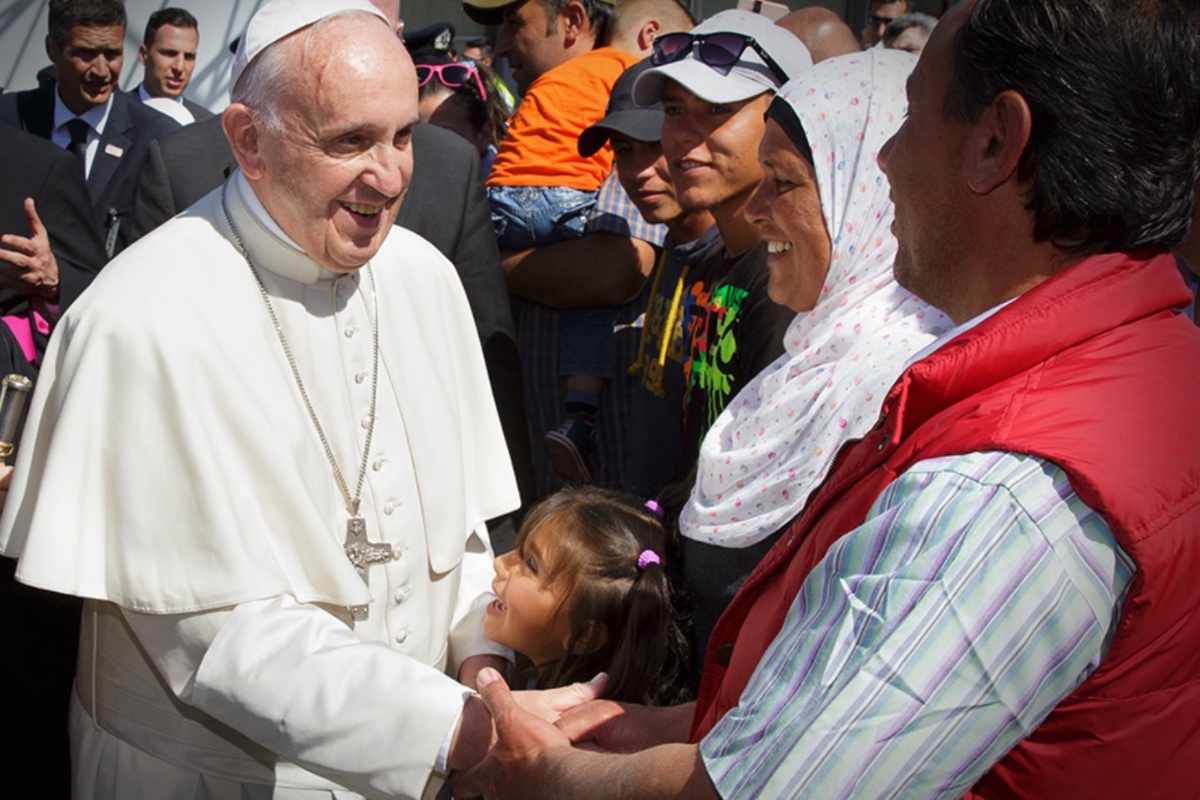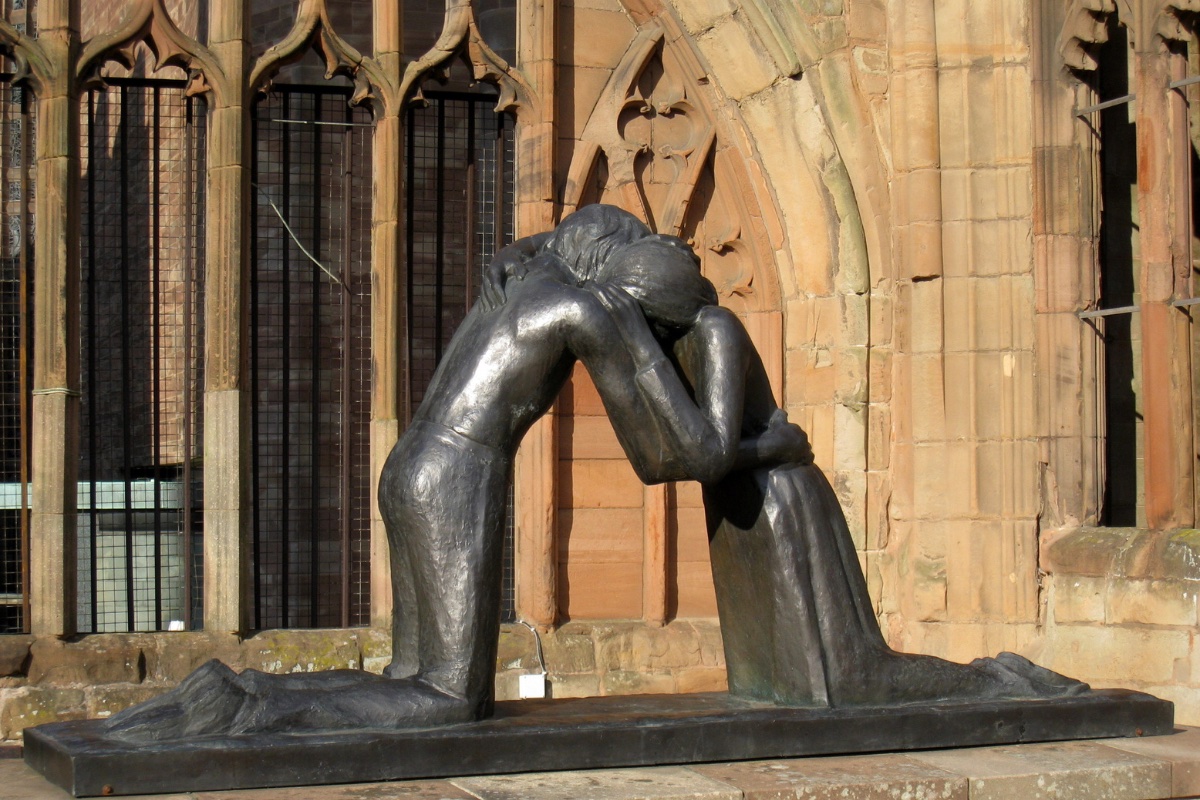We live in a graced world but it is often marred by failure and sin. Relationships are broken, terrible things are said and done, and hatred and vengeance can take hold of people’s hearts. Human efforts to resolve these issues are inevitably fragile and incomplete. Just think of the efforts to achieve reconciliation in situations from family conflicts to international disputes. Nothing in life is more significant than reconciliation. The story of salvation is the good news of God’s intervention in human life to offer healing and forgiveness.
Forgiveness is a divine gift that is readily offered to those who yearn to be reconciled with God and with others. It is a gift offered to women and men, Christian, non-Christian, non-believer alike, who desire to live in harmony, justice, and peace. This gift is never earned or merited but freely given to all. It may be experienced in many ways: an apology made and accepted; the letting go of a grudge or hurt; an act of service to another; a humble prayer offered; a spirit awed by the goodness of a stranger; a heart rejoicing with gratitude as a new day dawns.
The Bible is replete with images and stories of a gracious God and Father who ingeniously calls repentant daughters and sons to know the depth of divine mercy. In baptism, Christians first encounter this mystery of reconciliation and forgiveness. We are immersed in the new life of Christ; we receive the gift of the Holy Spirit and we become members of the Church. Despite the great dignity to which we are called as daughters and sons of God, the sad fact is that Christians do sin even after they have passed through the waters of rebirth. That is something we acknowledge in the penitential act at the beginning of every Mass. Believers are constantly challenged to configure their lives to the person of Christ, to encounter again and again the saving power of God’s healing love. Tertullian (+240) referred to penance as “the second plank following the shipwreck.” The Council of Trent took up this phrase to emphasize the connection between the sacraments of baptism and penance.
Pope Francis also emphasized this link. “The Sacrament of Penance or Confession is, in fact, like a ‘second baptism’ that refers back always to the first to strengthen and renew it. In this sense, the day of our Baptism is the point of departure for this most beautiful journey, a journey towards God that lasts a lifetime, a journey of conversion that is continually sustained by the Sacrament of Penance. Think about this: when we go to confess our weaknesses, our sins, we go to ask the pardon of Jesus, but we also go to renew our Baptism through his forgiveness. And this is beautiful, it is like celebrating the day of Baptism in every Confession” (General Audience, 13 November 2013). Indeed, the prayer of absolution said by the priest during the celebration of the sacrament begins by acknowledging the renewed gift of the Holy Spirit first given at Baptism: “God the Father of mercies, through the death and resurrection of his Son, has reconciled the world to himself and sent the Holy Spirit among us for the forgiveness of sins.”
True wholeness comes after an honest acknowledgment of brokenness that is made explicitly to another.
When serious sin ruptures the relationship of individual believers with Christ and the Church two things are required. First of all, confident of the boundless love of God, repentant sinners must reflect honestly on the situation in which they find themselves. The focus is on the goodness of God, not on the fallen nature of humanity and on the punishment due to sin. Each penitent articulates the sin to a confessor, not to demean or to degrade, but to raise up and to restore.
The individual confession of sins by the penitent in the sacrament of penance has its origins in early medieval Irish monasticism. It makes good pastoral and theological sense. One of the great temptations of our time is the denial of responsibility. In this sense, individual confession goes against many of the dominant values in our world in its embrace of the need to face the truth to express sorrow, make amends, and seek forgiveness. In encouraging individual penitents to articulate their faults, express sorrow, and take responsibility for their words and actions, the Church is revealing what even ordinary experience suggests; namely, that anything less will fail to achieve true reconciliation. This is borne out in varied human contexts where individuals have to face up to the reality of their lives. This is an insight that is central to Twelve Step programs. True wholeness comes after an honest acknowledgment of brokenness that is made explicitly to another.
Words of truth, of sorrow, of making amends, and of forgiveness are most profound and efficacious when spoken by one person to another. When individual penitents confess their sins to a priest, they are encountering the mystery of Christ. He addresses each sinner with a word of forgiveness. He is the word of healing and hope for a sinful world. No other situation of reconciliation offers such a firm guarantee of forgiveness and healing. To this end, Pope Francis reminded priests “that the confessional must not be a torture chamber but rather an encounter with the Lord’s mercy which spurs us on to do our best” (Evangelii Gaudium, 14).
Then, secondly, drawn by the prodigal love of the Father, each penitent needs to hear the infallible word of forgiveness pronounced on his or her behalf. Without the honest reflection and true repentance, the explicit words of forgiveness can sound hollow; without the guaranteed gift of forgiveness, the sincere confession will only give rise to scruple and guilt. But when true conversion is sealed by divine forgiveness, the mystery of Christ is encountered anew and the sinner is assured of God’s mercy and forgiveness.
Penance, then, is primarily about restoring lost dignity. It is about growing and maturing in union with Christ as daughters and sons of the Father who are graced by the Holy Spirit.
Monsignor Liam Bergin, S.T.D., is a priest of the diocese of Ossory, Ireland. He is professor of the practice in sacramental theology at Boston College.
Photo credit: Andrew Craig, '17, MATM '19. Fr. Michael Magree, S.J. listening to confession during Moonlight Mercy, an annual tradition during Boston College's Espresso Your Faith Week.
PRAYER OF ST. FRANCIS
Lord, make me an instrument of your peace:
where there is hatred, let me sow love;
where there is injury, pardon;
where there is doubt, faith;
where there is despair, hope;
where there is darkness, light;
where there is sadness, joy.
O divine Master, grant that I may not so much seek
to be consoled as to console,
to be understood as to understand,
to be loved as to love.
For it is in giving that we receive,
it is in pardoning that we are pardoned,
and it is in dying that we are born to eternal life.





